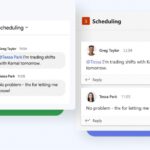This devious phishing site repurposes legitimate web elements like CAPTCHA pages for malware distribution

CloudSek has discovered a sophisticated phishing campaign distributing the Lumma Stealer malware, posing a serious threat to Windows users. The technique involves deceptive human verification pages luring victims to execute harmful commands unknowingly. The attack starts with victims visiting phishing sites that mimic Google CAPTCHA pages and being tricked into copying and running a hidden PowerShell command, leading to the installation of the Lumma Stealer malware.
To combat such attacks, user education on recognizing phishing tactics and the implementation of robust endpoint protection are crucial. Organizations should also monitor network traffic for suspicious activities and ensure regular software updates to prevent vulnerabilities. Anshuman Das from CloudSEK warns that the tactic of hiding malicious activity behind trusted CAPTCHA verifications could easily deceive users and evolve to distribute other malware types.
In related news, there have been instances of Exela Stealer using Discord for data theft, Lumma Stealer malware being linked to GitHub comments, and criminals utilizing YouTube videos to deceive victims. Stay vigilant against evolving cyber threats.







